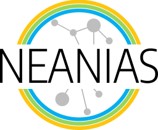The work “Defining and Detecting Complex Changes on RDF(S) Knowledge Bases“, with the support of NEANIAS project, has been published in Journal on Data Semantics.
- Authors: Theodora Galani & Yannis Vassiliou [1], George Papastefanatos & Yannis Stavrakas [2].
- Affiliations: [1] School of Electrical and Computer Engineering, NTUA, Zografou, Athens, Greece; [2] RC ATHENA, Artemidos 6 & Epidavrou, Marousi, Greece.
Abstract
The dynamic nature of web data brings forward the need for maintaining data versions as well as identifying changes between them. In this paper, we deal with problems regarding understanding evolution, focusing on RDF(S) knowledge bases, as RDF is a de-facto standard for representing data on the web. We argue that revisiting past snapshots or the differences between them is not enough for understanding how and why data evolved. Instead, changes should be treated as first-class citizens. In our view, this involves supporting semantically rich, user-defined changes, called complex changes, as well as identifying the relations between them. In this paper, we present our perspective regarding complex changes, formally define a declarative language for defining complex changes on RDF(S) knowledge bases and present how this language is used to detect complex change instances among dataset versions, which can be queried for analyzing evolution. The approach has been extensively evaluated in terms of language expressivity and detection performance on both artificial and real data.
Acknowledgments
This research is partially funded by the H2020 NEANIAS project (No.863448).
Read the full article at Journal on Data Semantics.
